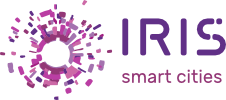
Utrecht University and startup incubator UtrechtInc, together with a broad consortium of local and European partners, have been collaborating as part of IRIS Smart Cities to power new business models and startups in the smart city space.
Dr Mark Sanders, together with colleagues of the Utrecht School of Economics, is conducting research into new business models for Smart Cities. Various activities to come up with new ideas are set up or monitored. Stefan Braam, startup incubation lead at UtrechtInc, then mentors teams to validate the business models behind promising ideas. An interesting interaction: practical support and coaching by the incubator, with simultaneous research into what works (and what doesn’t) by Utrecht University.
Role of business incubation in startup success
Research by Dr Chris Eveleens shows that going through an incubation process ensures a more effective change process for startups. Stefan Braam: “UtrechtInc focuses on mentoring teams with scalable ideas, in which the use of technology or data is an important factor. From an idea to first turnover, and from first turnover to growth as a company. We facilitate starting teams with entrepreneurial skills, office facilities, access to talent and to an extensive network of mentors”.
In addition to these important facilities, the three- to ten-month program consists of various workshops and trainings. “We also see that informal meetings are very important. The insights entrepreneurs in the making gain from these meetings that happen by chance lead to small, but crucial, adjustments to the original business idea,” says Braam.
New insights lead to new ‘recipes’
Research conducted within the IRIS project made UtrechtInc understand that smart city startups do not need a substantially different incubation program, although tech startups do have different needs. “We need to have teams active in the Smart City domain actively learn from each other,” says Braam. “Therefore, we have chosen to split our original validation program into three separate programs. One for students, one for scientists, and one for teams with a strong focus on technology.”
The reason for the change in the incubation programs is twofold. Braam: “On one hand we look at it from a quantitative perspective: incubation is partly a matter of probability. A larger influx of teams with ideas increases the chance of finding that one needle in the haystack. More importantly, the quality of the program improves: this way we better meet the needs of the participants. Our experience is that the needs are mainly determined by the composition and qualities of the team, less by the type of product or service”.
For the researchers at the university, therefore, the focus shifted from incubation – guiding ideas to first turnover – to ideation – generating ideas and solutions that can serve as input for an incubation trajectory. Mark Sanders: “We soon discovered that innovation in the Smart City domain is not a question of adapted incubation trajectories, but rather of actively attracting Smart City related ideas.”
In order to come up with as many ideas as possible, challenges and events are now being organized. Sanders: “We evaluate these activities and then write them down as a ‘recipe’. This way other cities within and outside the IRIS project can organize these activities to drive innovation in their efforts to become a Smart City”.
Result: more applications and worldwide recognition
In 2017 and 2018 a total of 24 startups were taken under the wing of UtrechtInc, the incubator’s new programs had over forty applications in 2019. 24 of them were admitted. In addition, at the end of 2019, UtrechtInc was once again included in the top 10 university incubators worldwide.
Well-known alumni of UtrechtInc are GitLab and SnappCar.
05 Jun 2020

